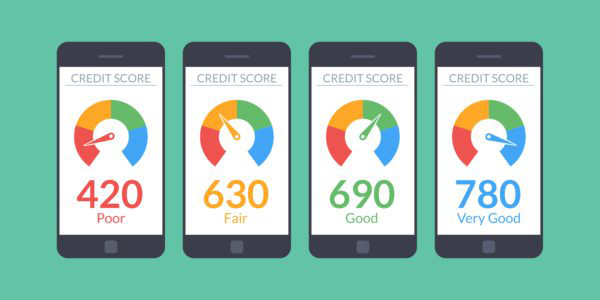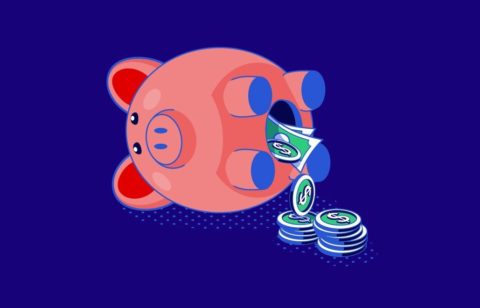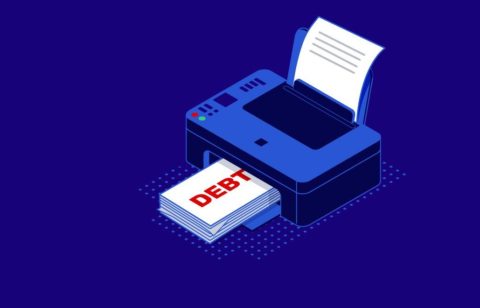
Everyone who has debt is eager to get out from under it. Living with oppressive debt is difficult and stressful. It’s also expensive and can make it difficult for many consumers to reach financial security and plan for retirement. While some believe there’s such a thing as good debt and bad debt, all debt can be burdensome. Student loan debt, for example, may help a consumer increase earning power, but the payback can be long and difficult. Borrowing money to buy a house can help a consumer make a good investment, but most consumers will be paying back that mortgage for 30 years. Therefore, while acquiring debt may be a means to a good end, it can make life difficult along the way.
If you’re interested in getting out of debt, you have a few ways to approach it depending on your circumstances. The basic principles of getting out of debt involve two things: reduce spending and/or increase income. One of the most popular methods of reducing the money spent on debt is to consolidate debt into a loan that has more favorable terms than what a consumer currently has on credit cards.
What’s a debt consolidation loan?
A debt consolidation loan combines all of your existing loans into one loan with a lower interest rate and a lower payment. In addition, a debt consolidation loan has an additional benefit in that consumers go from making many payments to many creditors a month to making one payment to one creditor each month. This can significantly reduce stress and streamline the repayment process.
Consumers can accomplish consolidation loans in a number of ways, depending on their individual circumstances, the amount of their debt, and their credit score.
If a consumer is a homeowner, then a home equity line of credit (HELOC) might be an option. A HELOC allows a consumer to tap into the equity in his or her home on an as needed basis. There are generally no restrictions on the use of funds for a home equity line of credit, so the consumer is free to use the proceeds of the loan in any way deemed suitable. Home equity lines of credit are generally easy to qualify for if the consumer has sufficient equity, a reliable source of income, and an acceptable credit score.
Consumers who are homeowners can also consider another type of loan that utilizes the equity in the home called a home mortgage refinance with a cash-out. This means that the homeowner borrows more than what he or she owes on the current mortgage and uses the excess cash to pay off existing debts. Consumers wishing to utilize a home refinance with cash out also need to have sufficient equity in the home, a predictable source of income, and a decent credit score.
If the consumer doesn’t own a home, or doesn’t wish to utilize the equity in the home, a third option for debt consolidation is a personal loan through a bank or other lender. These types of loans are especially useful when a consumer’s debt is not too large. Consumers can usually get a better interest rate on a personal loan than the rates being paid on credit cards. Generally, these loans facilitate a fast payoff through favorable interest rates but short payoff terms. Therefore, the monthly payments may not be much less, but the debt will go away quickly and with the consumer paying far less interest.
Should you consolidate your debt?
Debt consolidation, if done correctly, can be a powerful tool in getting a consumer out from under a heavy debt burden. The most important thing for a consumer to remember is that taking on any new debt isn’t ideal. If you take out a loan to pay off your debt and then run up your debt again, you’re in far worse shape than you would’ve been had you done nothing.
If you’re going to consolidate your debt into a debt consolidation loan, you should understand a few things first, including the advantages and disadvantages.
Advantages of debt consolidation
If you’re considering a debt consolidation loan, there are some clear advantages to doing so.
Make one payment
One of the most desirable things about a debt consolidation loan is that a consumer goes from making many payments to creditors to making just one single payment to the debt consolidation lender. Many consumers feel this will lift a heavy burden off them and help clear a path to becoming debt free. Moreover, having less to administrate will help guard against missed payments, which can severely affect a credit score.
Sometimes just streamlining the payment process can help consumers feel more in control of their financial future and set them on the path to financial health.
Lowered payments
Most times, when a consumer takes out a debt consolidation loan, the overall cash outlay each month is lower. This can help a consumer to avoid taking on new debt and, perhaps, start saving money instead of spending into the negative every month. Creating and funding a savings account can help consumers avoid going into debt when faced with an emergency expense such as a medical bill or an expensive car repair.
Lowered interest rate
One of the goals of a debt consolidation loan is to lower the overall interest rate that a consumer pays on his or her debt. This will lead to assured savings in the long run.
Consumers need to be certain that debt consolidation is the right choice for them by having a complete picture of what they’re currently paying each month in interest and principal, and what the new payments will be with the new loan. Consumers should be aware that longer payment terms will yield lower payments, but they’re not always the best choice.
Get caught up
If a consumer is running chronically behind on bills, a debt consolidation loan can help him or her to catch up. This can improve the quality of life of those who are living under the stress of dealing with living paycheck to paycheck or running behind on their bills. In addition, credit scores can suffer greatly when bills are late.
Disadvantages of a debt consolidation loan
Consolidation loans also carry with them certain disadvantages. If consumers are not disciplined and don’t change their spending habits, a debt consolidation loan could put them in a worse situation. In fact, if consumers aren’t careful and diligent, they could actually pay more in interest over the life of the loan.
Running up credit card balances again
Debt consolidation loans can take away the oppressive burden of overwhelming debt very quickly, but if consumers are undisciplined, they could find themselves in worse trouble.
When consumers go through the hard work of paying off their debt payment by payment, they learn valuable lessons. Chances are strong that they will be less likely to run up their debt again. However, with a debt consolidation loan, it can be all too easy to continue to spend and live above one’s means.
Consumers that take a debt consolidation loan to pay off their debt and then continue to accumulate debt on credit cards can spend their way into financial ruin. If they’ve used their home to obtain a loan, they could put their most valuable asset at risk.
Paying more interest in the long run
Debt consolidation loans can lower monthly payments and provide significant relief for consumers who are struggling under a heavy debt load. However, consumers need to be aware that consolidation loans can often mean paying more interest in the end. Consumers who utilize the equity in their homes are likely looking at significant closing costs and long loan terms. This means that consumers could be paying interest on their debt for up to 30 years.
No change in spending habits
Many consumers find that after they consolidate their debts, their life changes very little. Any savings realized from their debt consolidation seems to disappear quickly in their everyday spending. If they haven’t changed their habits and don’t budget their money going forward, they are likely to find themselves overwhelmed with debt once again.
How will a debt consolidation loan affect my credit?
There are ways a debt consolidation loan could help your credit score. Your score could improve if:
- You’re on time with your consolidation loan payments every month. (Paying your debts on time has the greatest influence on your credit score)
- You’re able to eliminate your balances, or reduce them to less than 30% of your credit limit on the card. (The ratio of credit used to credit available is your credit utilization, which has a profound effect on your credit score)
- You’re able to diversify your lending profile, meaning taking a loan, such as a personal loan, that’s different from only having credit card accounts. (Having different kinds of credit can help your credit score)
- You’ve changed your spending habits and made a commitment to not accumulating more debt.
Debt consolidation may hurt your credit score if you:
- Continue to make charges on your credit cards after you pay off your balances. (Any gain from reducing your credit utilization will go away quickly when your balances go up again)
- You’re 30 days (or more) late on making your payments on the debt consolidation loan. (Payment history is one of the biggest factors of your credit score)
- You apply for loans for which you cannot qualify. (Many credit inquiries in a short period can lower your score)
If you’re unable to qualify for a consolidation loan
Unfortunately, some consumers are unable to qualify for debt consolidation loans. They either damaged their credit with late payments or just have too much debt to get approval for a loan. If this is the case, they may feel like they can never solve their debt problem. They may feel that bankruptcy is the only answer.
Before a consumer considers filing for bankruptcy, it’s important to understand the repercussions of such an action. A bankruptcy is a nuclear event for a consumer’s finances. It will also stay on a consumer’s credit report for up 10 years. Those who don’t already have a mortgage will find it impossible to get one, and any other assets may be lost in the process if not deemed ineligible by the bankruptcy court. A consumer filing bankruptcy may also not have any access to credit cards or other credit for many years.
In addition, consumers need to know that filing for bankruptcy does not alleviate their credit problems. Those obligated to pay alimony or child support will still have those obligations. Student loans and mortgages also stay.
There are other options to consider before filing for bankruptcy. Debt relief companies might be a solution to help consumers resolve a serious debt situation. National Debt Relief works with consumers to help negotiate settlements with those to which they’re indebted.
Tackling a big debt problem can be a difficult and stressful process. However, if consumers are willing to be honest with themselves about the cause of their debt and make some fundamental changes to their lifestyle and spending habits, there’s a path to becoming debt free.





